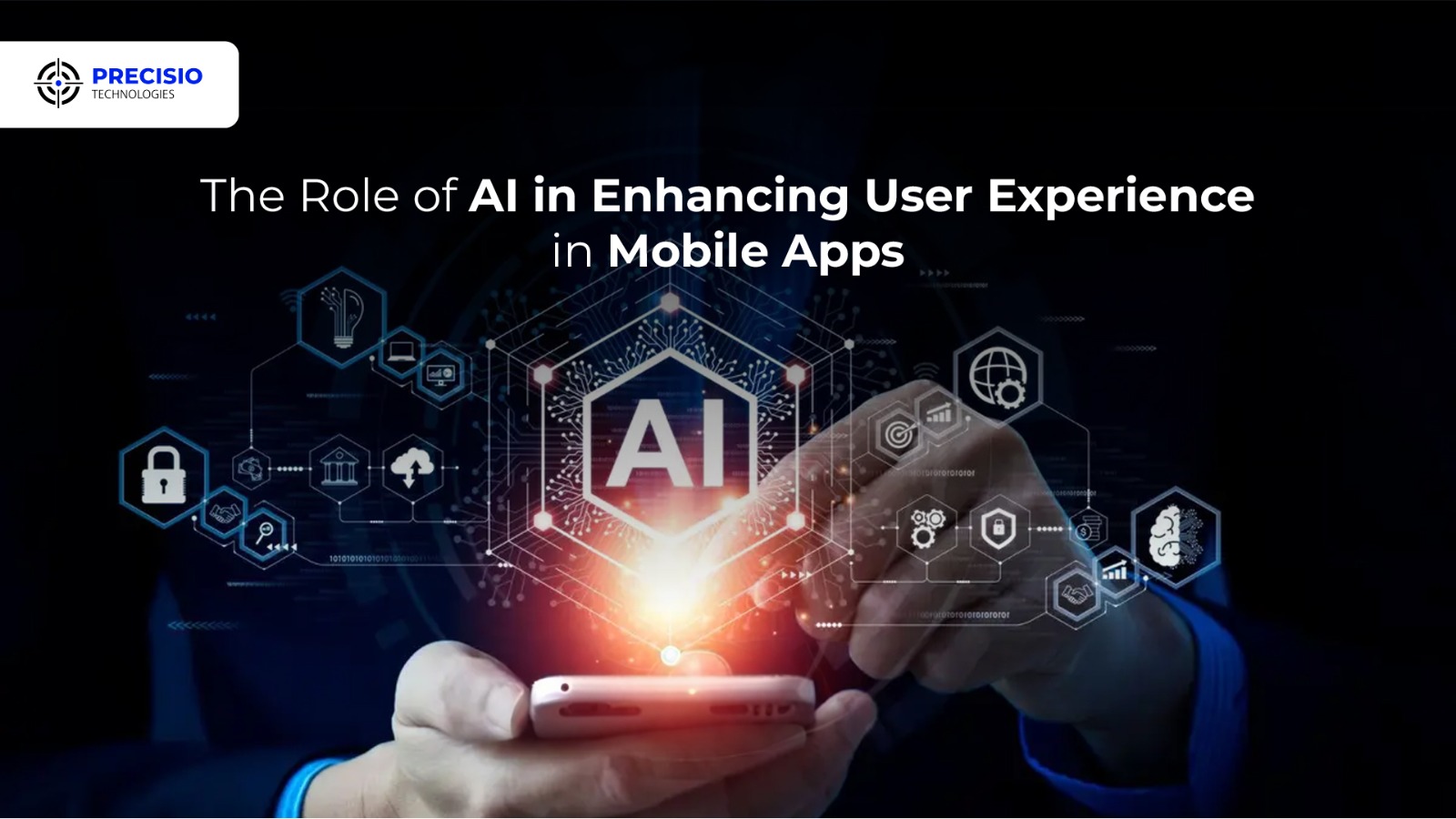
Introduction
Artificial intelligence (AI) has a huge impact on the method used by users to access and engage with their mobile applications. It allows apps to be smarter, more intelligent, and designed with the user in mind, capable of providing an experience to the user’s taste. And for the end users, this implies an improved and open experience, which is built and tuned to their requirements. Let me tell you how artificial intelligence affects mobile apps, one feature at a time.
Key Ways AI Enhances User Experience in Mobile Apps
1. Personalized Recommendations

AI analyzes user behavior, preferences, and past activities to offer highly personalized recommendations. For instance:
- Streaming apps like Netflix suggest movies and TV shows based on your viewing history.
- E-commerce platforms such as Amazon give recommendations for products that are likely to be purchased. This saves time for the users and makes the application very personal.
2. Smarter Chatbots and Virtual Assistants

AI-powered chatbots, such as those integrated into mobile banking or retail apps, provide instant, 24/7 customer support.
- Smarter Chatbots: These bots can respond to your questions, disputes, and even help with payment processing, among other things.
- Virtual Assistants: Siri, Alexa, and Google Assistant are some of the most implemented voice assistants that comfortably command devices and perform tasks to the optimum.
To users, it means that they are not forced to wait for a long time while solving a particular problem.
3. Enhanced Security Features

AI in mobile apps helps ensure user security with advanced technologies like:
- Facial recognition The ability to use facial identity for logging into accounts safely.
- Behavioral biometrics The use of behavioral biometrics to be able to identify suspicious actions.
For example, mobile banking applications employ AI to help them recognize fake transactions to prevent users from losing their hard-earned money.
4. Intelligent Search Functions

A search feature is highly relevant in applications such as m-commerce, travel, and media. AI improves search accuracy through:
- Predictive text A self-complete text that suggests what to look for automatically.
- Natural Language Processing (NLP) to interpret human communication
This ensures users find exactly what they’re looking for in minimal time.
5. Improved App Performance with Real-Time Data

AI performs constant check-ups on the app and further enhances it depending on the user usage statistics.
- Load time prediction: AI renders enhancement in the rate of loading through caching of frequent content.
- Crash analytics: It detects problems before they become major problems or defects because the bugs are bad news.
For users, this means a smoother and more reliable experience.
6. Voice and Image Recognition

Many apps now feature voice and image recognition technologies, enhancing convenience:
- Voice recognition: Apps like Google Translate come equipped with an option to speak instead of typing, making all tasks faster.
- Image recognition: Picture search is provided by such applications as Pinterest or Google Lens, where users can enter an object.
This improves usability and provides an engaging, futuristic feel.
7. Context-Aware Features

AI allows the bolstering of the process for mobile applications based on the context of the user’s surroundings.
- Navigation apps like Google Maps provide traffic information and options when viewed on the smartphone but provide real-time information based on the current situation.
- Fitness apps adjust workout suggestions based on a user’s recent activity or health data.
These features add relevance and value to the user’s experience.
8. Content Moderation and Curation

Social media platforms and content-sharing apps use AI to:
- Detect and filter inappropriate content.
- Curate feeds to show the most relevant posts to users.
This makes the app experience safer and more enjoyable for all users.
9. Gamification and Behavioral Insights

AI analyzes user behavior to introduce gamification elements that enhance engagement.
- For example, fitness apps reward users with badges or achievements based on milestones.
These elements keep users motivated and connected to the app over the long term.
10. Accessibility Improvements

AI makes mobile apps more inclusive with features like:
- Speech-to-text for users with hearing impairments.
- Screen readers for visually impaired users.
This ensures everyone, regardless of ability, can benefit from mobile applications.
Conclusion
AI is not a hype; it forms the base for the creation of phenomenal innovations in the mobile application industry. From recommending what to watch or listen to to intelligent security, AI adds value to applications, making them assets that have become instruments we can’t do without in our everyday activities. This functionality of predicting the needs, the capacity to understand the context, and guarantee a high level of security improves user satisfaction drastically.
In turn, the use of AI technology becomes progressively more natural as those intelligent applications become mobile applications that simulate an assistant. For end users, this implies an environment in which applications automatically conform to their lifestyles and preferences and must make interactions with them valuable each time.
How Precisio Technologies Can Help
At Precisio Technologies, we specialize in creating AI-powered mobile apps that deliver exceptional user experiences. From advanced personalization to robust security, our expertise ensures your app is always a step ahead. Let us transform your ideas into intelligent, user-centric mobile applications.
